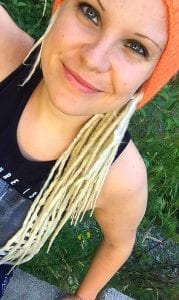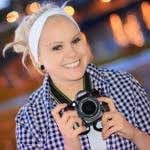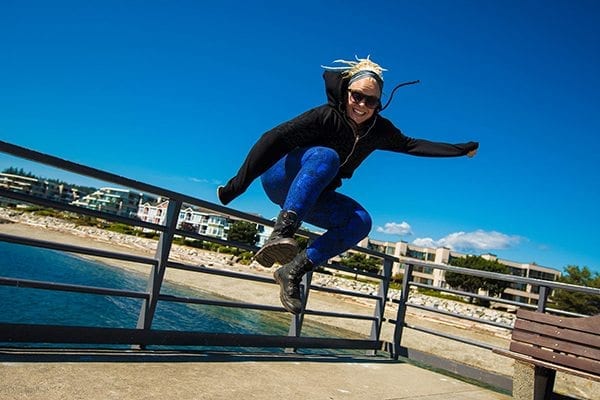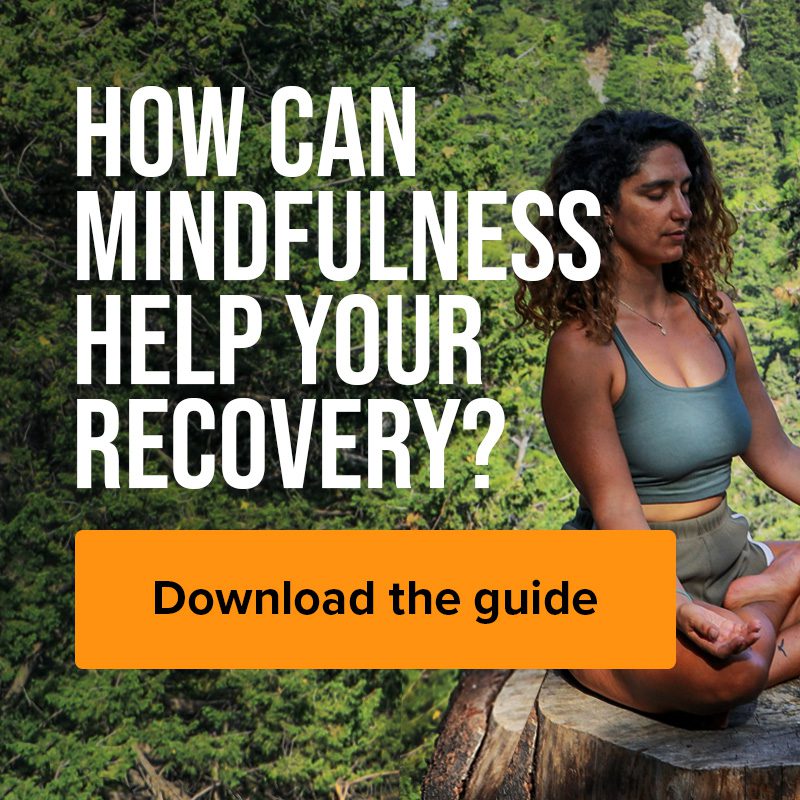By Jeff Vircoe
On screen, the face of a man speaking with great passion appears. The camera lens gradually comes into focus, sharpening the view on someone who had experienced great pain as a child, now expressing how he had chosen to work his way through the emotional scars in the hopes of becoming a better person.
The interviewer related. Much more than the audience would know.
 As a videographer for Shaw Television in Nanaimo, B.C., journalist Fiona S. was covering a story about people who know firsthand what it means to overcome adversity.
As a videographer for Shaw Television in Nanaimo, B.C., journalist Fiona S. was covering a story about people who know firsthand what it means to overcome adversity.
The story featured a local theatre production about men learning to live lives of integrity and respect. With funds raised from the play destined for a program which helps men overcome lives of abuse, given and received, Fiona was merely doing her job, carrying a compelling message to the audience about a newsworthy event in their community. She showed up to cover the story, only to discover two of the actors had a distinct connection with her. Like herself, they had completed treatment at EHN Edgewood Nanaimo. In that, they are like family. They are alumni.
“People in recovery are everywhere, here in Nanaimo,” she says with a wide smile. “We did a studio taping last week and one of the musical guests was in recovery, too. I didn’t realize it, but we had so many mutual friends on Facebook. He told me he had heard me speaking at a meeting. They are just everywhere. There are so many people in recovery all over the place here.”
Carrying the message of hope and recovery has plenty of layers to it. The 12th Step of the program Alcoholics Anonymous reads, “Having had a spiritual awakening as the result of these steps, we tried to carry this message to alcoholics and to practice these principles in all our affairs.”
The actors on the stage know the code well. They have been sober long enough to understand that, sometimes, an audience member will hear their stories and may be inspired to make similar changes.
And the journalist who promotes the story knows it, too.
As a woman with just over five years abstinent under her belt, Fiona is a 12 Stepper. One whose spirit is wide awake. And one who is quick to see how her experience as a recovered alcoholic can benefit others.
“I like to leave any situation that I enter a little bit better than it was when I got there. That’s kind of my philosophy. But I’m still really learning a lot about who I am. I’m able to do that through recovery,” she says, adding humbly, “I don’t have anything really figured out yet.”
At 30 years old, Fiona does have enough figured out to acknowledge how she has come such a long way from where she once was. Though she sometimes seems to downplay the ferociousness of her addiction, the truth is she knows how important recovery has been, leading her to a life worth living.
It wasn’t always that way.
 Born and raised in Toronto, Fiona wasn’t exactly a low-bottom drunk. The only child of parents who worked in the health field, nothing about her upbringing signals a future of alcohol and drugs. Like many adolescents, she discovered alcohol at 15, but it didn’t launch a tsunami of carnage.
Born and raised in Toronto, Fiona wasn’t exactly a low-bottom drunk. The only child of parents who worked in the health field, nothing about her upbringing signals a future of alcohol and drugs. Like many adolescents, she discovered alcohol at 15, but it didn’t launch a tsunami of carnage.
“I hear a lot of people say that, [for] all alcoholics or all addicts, it’s that first time you drink you black out and it’s like that right from the first time. But, for me, it wasn’t like that right from the first time. For me, it took quite a few years. I was just drinking occasionally on the weekends and things like that. I definitely looked like a normal drinker and wasn’t blacking out. And then it just slowly, slowly progressed.”
If she got a pass for the first five years of her consumption, the illness kicked it up a notch by the time she left her teens behind. While studying French at Western University in London, Ontario, the consequences of her drinking and her choices in and out of school were making things unmanageable. She was invited to depart the university.
“Around that time, I got kicked out of university. My marks weren’t very good. I wasn’t really focusing on school. I had a lot of other personal issues. I was in a really bad relationship and that really took over for me. My drinking was escalating. I moved back to Toronto with my parents for a little while. And that’s when it became pretty obvious that I was drinking a lot more than I would consider to be normal.”
When alcohol hasn’t become an obvious problem yet, it can still seem to be a close friend you’re not willing to abandon just because of a few off-the-chart incidents.
“I’ve always struggled with social anxiety. I still do, even though it has gotten a lot better in recovery. But it’s still there. So, alcohol took away that social anxiety for me. I thought that it made me a lot more interesting. Made me a lot more interested in other people.”
The symptoms of addiction are many. While many seem to think Main and Hastings are the prototypical ground zero of addiction, the truth is most addicts don’t live on Vancouver’s East Side. Or Toronto’s Jarvis stroll. Most addicts have jobs. Families. Homes. They suffer the consequences of their horrid merry-go-round amongst us. Silently.
After a year away from the rigors of university life, Fiona decided to reapply herself, this time chasing a dream she’d had since she was very young, to be a videographer. She enrolled at Toronto Film School.
“I finally went into school for something I really, really wanted to do. University wasn’t the right path for me, for my own goals. I really wanted to be a videographer, and university isn’t necessarily the quickest way to get there. So, I got into this great, hands-on program. It was really, really cool.”
The change was cloaked in honorable intentions, of course. However, as any addict will tell you, addiction has its priorities. Feed the black dog. Vodka, forays into cocaine. But, the booze was first and foremost.
The consequences of her drinking mounted.
“Sometimes, I had to miss school because of my drinking, if I was recovering from a really bad night. One time, I had fallen and I don’t remember any of it, but I had woken up and my ankle was completely swollen and I couldn’t walk. My dad had to take me to the hospital, and I missed school because of that. I was in a complete black out. There were a few things like that. Bringing alcohol to school. Stuff like that.”
Fiona wasn’t ready to admit she had a problem. She strategized, rationalized, justified herself away from the inevitable bottom as long as she could.
“I would spend time with different friend groups when they were drinking. Pass it all along like that.”
By 2010, at age 23, she finally was no longer able to deny the effects.
She and a close friend decided to go on a backpacking expedition through Europe.
“That was one point when I noticed things getting a lot worse. We went away for four months. I drank every single day that we were gone. There wasn’t a day when I didn’t drink.”
The volume of her addiction turned louder.
“I remember my friend had a few days where she didn’t want to drink, and I just thought it was totally bizarre. I was going into blackouts and also into rages. Raging, getting really verbally abusive towards my friend. Which was very bizarre. It’s not like I felt like I had any built-up anger towards her. Yet, when I would go into these blackouts, I would yell at her and tell her that she was selfish, that I hated her, all kinds of things that weren’t even coming from a place [in myself] that I understood.”
“I would wake up in the morning and not remember what had happened, and she would be quite upset with me on many of these mornings. I would be totally dumbfounded and [ask], ‘Well, what’s wrong?’ She’d say, ‘What, you don’t remember? You screamed at me last night in the middle of the street. You told me you hated me.’”
Returning from Europe brought no respite. Her illness had progressed.
“As soon as I came back, I had to go visit a whole bunch of people who wanted to see me and hear about how the trip was. I had so much social anxiety about seeing all these people that I remember drinking a 26er of vodka even before we went. There was going to be drinking at all these events anyway, so it’s not like I wasn’t going to have any access to alcohol all night.”
Her partner at the time was not impressed.
“She just looked horrified with me. Soon after, she ended up breaking up with me, told me to leave our home. I don’t know if it was entirely because of the drinking, but I’m sure that was a main, front-and-centre reason.”
Fiona moved in with her grandmother, and was not the granddaughter she wished she could be.
“I’ve been able to overcome a lot of regrets through being in recovery. But one thing I feel such guilt about is [that] I wasn’t really there for her. I don’t think I was nice to her all the time, and she really could have used a roommate looking out for her the way she looked out for me when I was a baby …”
They say it gets darkest before the dawn, and Fiona says this was the darkest time.
“I just couldn’t get much of anything done. Drinking was just everything. I knew there was someone living inside of me who had talents, who had so much more potential, but I just couldn’t find her. It was just really, really frustrating. I couldn’t do anything without drinking anymore.”
A 21-day outpatient treatment program at another centre was unsuccessful. While the other patients stayed on site, Fiona went home. And drank. And then went back the next day, and the days after, feeling guilty. Hopeless.
“Every night I would go home and say, ‘Okay I’m not going to drink tonight because I’m doing this program. Maybe I can drink when the program is done, because maybe I will have reset myself back to a normal drinker. But at least for these three weeks I should be able to not drink, at least out of respect for the other people.’ And I couldn’t do it. I couldn’t do it. It was so hard.”
As behind-the-scenes close friends were planning an intervention to try to alert Fiona to the seriousness of her predicament, the bottom arrived.
“I was blacking out every day and had started drinking alone, mostly because I was so embarrassed by what I would do or say around other people,” she recalls. “I would drink first thing in the morning to stop shaking and throwing up, and often resort to drinking mouthwash if I had no alcohol. If I stopped drinking, I would shake until I drank again. I had convinced myself that I was medicating my anxiety disorder, and didn’t realize until later that the alcohol withdrawal was causing most of my distress.”
She finally reached out and got honest with her mother, who started the ball rolling in a direction that would make a difference.
“My mom got me a referral service in Toronto. They gave me a whole bunch of different places that [were] possibilities. I thought, ‘Okay, Nanaimo.’ I’d never heard of that. It’s far away. I don’t know where the liquor stores are there, for sure. There was a centre in Toronto, but I just felt like, in Toronto, I know where all the liquor stores are and I have memories [of] drinking everywhere.”
So, in November, 2011, Fiona arrived at EHN Edgewood Nanaimo.
“Jim Edwards was my inpatient counselor. I love Jim so much. He has such a special way about him,” she says, fondly, before laughing. “I didn’t like him when I first met him, but I don’t think I would have really liked anyone then.”
In extended care, she was under the tutelage of Terry Ketteringham.
“I just respect and love both of them so much. They made such a big impact on me.”
Though it was five years ago, Fiona still recalls with clarity the role Edgewood played in getting her priorities straight.
“Edgewood was really, really important. There are so many things I had to do there that I really didn’t understand at the time. Now, I look back and I’m grateful for those things. The community there was just huge. Meeting other people that had been in the same situation, and realizing that I’m not a horrible person. That there is actually something wrong in my makeup that I have to find out how to live with. That was huge.”
 Like most people who arrive in inpatient treatment, getting used to the structure and sheer number of people, places and rules was challenging.
Like most people who arrive in inpatient treatment, getting used to the structure and sheer number of people, places and rules was challenging.
“Even the first day, I remember being thrown in and having to figure out what to do and assimilate with everyone. Just to actually have to go and ask people for help. That was a big thing. I was like, ‘Why aren’t they explaining everything to me, the schedule? Why doesn’t someone sit me down and give me an orientation?’ But that was actually really good, because that’s how I got to meet people and ask for help. Asking for help was really, really hard – but you have to do it all the time in Edgewood.”
“It’s just about getting used to doing something that is uncomfortable. Doing things in a new way. Doing things in a way that weren’t my ideas. That’s what you had to do. Just let yourself be uncomfortable for a little while.”
Like many who come through Edgewood, going straight home after treatment was not a good idea. Fiona knew she wasn’t strong enough. She was right. Even after two months as inpatient and three more in extended care, she would relapse several times over the four-month period after completing. Today, she blames euphoric recall, and focusing on a person rather than recovery, as her Achilles heel.
But, she remained close to her friends in recovery, and she kept coming back to meetings in spite of her slips. Her support group would make the difference.
“There was something in me that was still interested in getting sober. So, I just kept on going to meetings because I was so used to doing that. Eventually I just started watching my friends who had gone through Edgewood, [saw] their lives getting better. They were getting to know themselves from within. Living their lives with integrity. Getting jobs. And I was looking at myself … I mean, it got pretty bad. I woke up in the psych ward with all my limbs strapped down. One time, I crashed my car into the fence of the sober house [where] I was living. Got kicked out. Another time, I got my car impounded and got my license suspended.”
Finally, the bottom arrived again, but this time with a dull roar.
“The last time I drank, nothing particularly significant happened. I just felt that I was exhausted. I felt like I was done. Although drinking was so familiar for me, it just didn’t fit in with my life anymore. It just didn’t fit in with the kind of person I wanted to be. I really felt that it didn’t fit in.”
She went to her home group and got honest. Changed her sobriety date. Life rebooted.
“A friend came over from the program, an Edgewood alumnus, too, and dumped out all my alcohol. I went to sleep and woke up. I went to a meeting and said I was coming back. I was welcomed with open arms. I got a phone list. Everyone wrote funny little notes on the phone list, and I just felt so much love in that meeting. Though I had really been fighting, I just felt like this is what I really need. To be here.”
Fiona recognized that she is one of those in recovery for whom the obsession to drink has not necessarily been exorcised. It is a daily battle for some.
“I have this monkey on my back that tells me that, maybe down the road, it could happen. That I could drink safely. I would do anything to make it go away,” she says with a shrug.
But she redoubled her efforts in the 12 Steps and got heavily into service work, inside the fellowship to which she is most attached and with community volunteer efforts.
Most importantly, spiritually speaking, she has found something that works.
“I found people who had had the same struggles that I had, and had come out the other end. So, I found a new sponsor. My sponsor before that was wonderful, too, but she hadn’t had that particular struggle that was getting to me. I once heard someone with fifteen years of sobriety say at a meeting, ‘When I got sober, I was young and just felt like my whole life was over.’ That was how I was feeling, and she had relapsed a few times in early sobriety, too. So, I got to know her, and she really helped me through that first year. Then, I got a different sponsor to help me with my spirituality because I felt like that hadn’t really evolved much and I wanted it to. She is like the most spiritual person that I know. She has the type of spirituality that I want. So, I asked her to be my sponsor and did a set of steps with her. I feel like my spirituality has really taken off since, and that has been a huge thing.”
Career-wise, Fiona has the job she has always wanted. After several years of volunteering, shooting videos for websites and musicians for free or for little reimbursement, she applied for and got the job at Shaw. It’s an incredible gig, she says.
“I get to work with the community a lot. I get to tell different stories of what’s going on in the community. I get to do so many things there. I get to direct studio productions. I get to shoot. I get to edit. I get to tell stories. I get to interview people.”
“It’s kind of funny. Sometimes I have these moments where I have to pinch myself. Am I really getting paid for this? I love my job.”
In her personal life, she is engaged to her partner, Kara, and coming up on four years as a couple.
“It’s my partner’s first healthy relationship, too, so we both have these moments where we are just blown away by how we communicate with each other. We can have a little tiff and we just deal with it before it becomes an issue. We are so open with each other. She’s on a real spiritual path as well, and that has been huge in our relationship. We both want to keep improving. She goes to meditation and she loves self-help stuff. She’s had trouble speaking her truth in the past, so she’s really working on that. She does lots of things to try and be her most authentic self and grow into that person.”
“For both of us, we’ve been able to really find ourselves individually in these last few years, and then come together as a couple. It’s been so awesome. She’s so kind. The kindest person I’ve ever met. It makes me want to be a kinder person. She never holds anything against me. I’ve never been in a relationship where the person doesn’t hold things against me. You know, you get into a fight and it’s not only this fight, it’s all the other fights come back up. She never brings things up like that. We both bring out the best in each other.”
Five years into her recovery now, Fiona has a lot of good in her life. Her priorities are right. Recovery. Family. Work.
“Back in 2011, my mother flew with me from Toronto to Nanaimo to make sure that I arrived at Edgewood safely. When the plane landed, I remember her saying, ‘You never know, you might end up moving here.’ I thought she was totally nuts. Now, not only have I moved here and bought a house, my parents made the decision in the spring of 2016 to make the move from Toronto to Nanaimo as well! It’s great having them nearby and I’m grateful for the opportunity to rebuild our relationship.”
The girl who was once helpless in Toronto has become a responsible, helpful member of the community in a mid-sized city on the West Coast.
Besides working at Shaw, she’s helping a National Geographic photographer get her photos up online. She’s continuing to help small businesses with videos and photos for social media. This month, she interviewed Edgewood alumni carrying the message of integrity. Last month, she told the inspirational story of a 93-year-old skydiver. She’s a budding rapper, a fixture in the LGBT recovery community. She still does a couple of meetings a week, and has friends in many walks of life all over the Island.
“Nanaimo is such a great place to get sober. It is such an easy place to create those new habits. There’s so much nature. Walking and hiking and farmers markets, so many places to explore around here. To relearn how to have fun. There are lots of opportunities to do that. I walk around Westwood Lake all the time,” she says.
“I always thought, ‘Whatever am I going to do without drinking? How will I ever find anything I can even do anymore?’ My only problem today is I don’t have enough time to do everything that I want to do. There is so much to do that I honestly wish I could clone myself, some days. There is so much to do and not enough time.”




